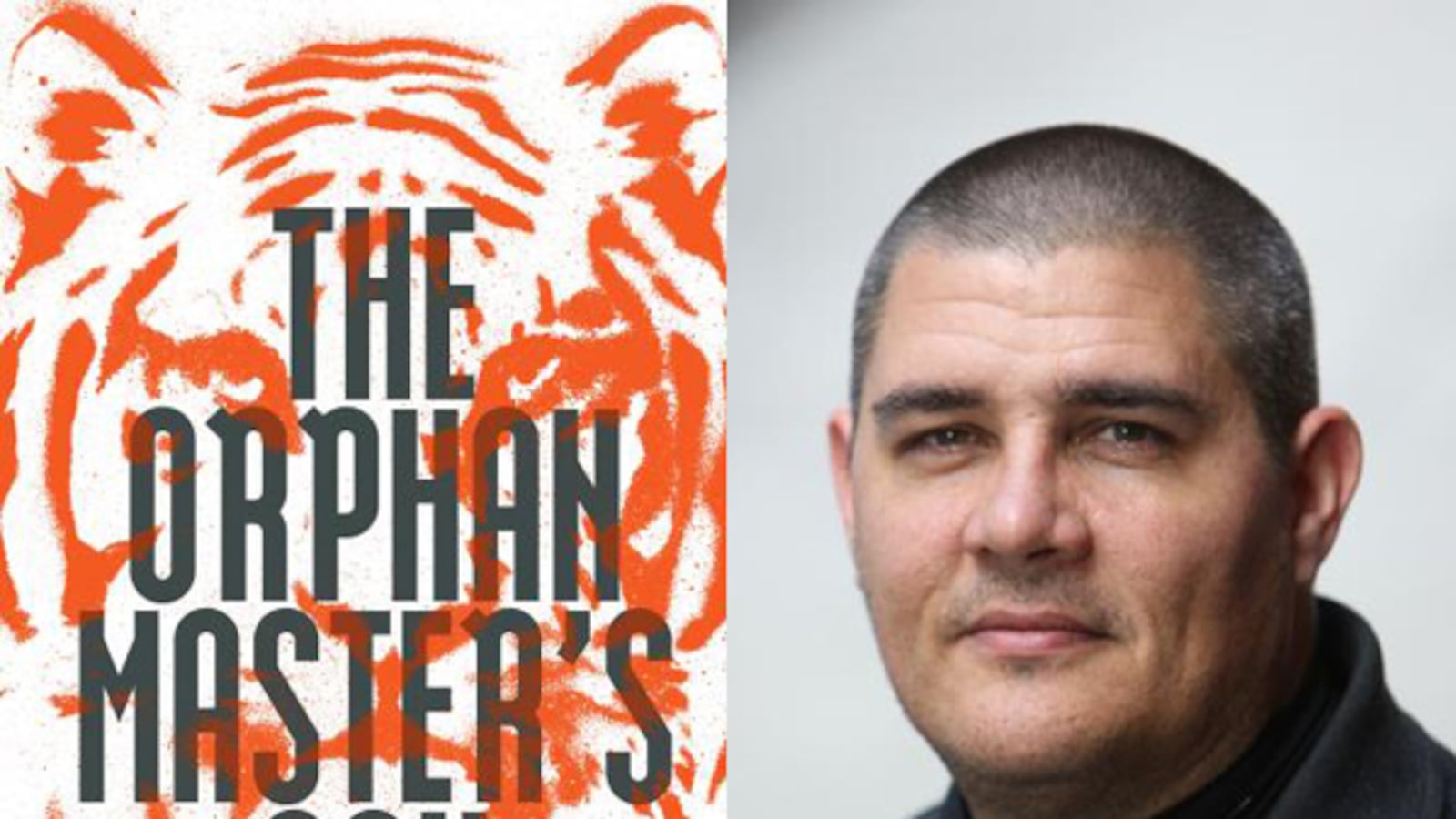Why don’t more novelists write about North Korea? The morbid fascinations are endless—a police state with an automaton citizenry, a landscape of Stalinist gulags and eerily empty superhighways, a (departed) Dear Leader fond of kidnappings and cognac who famously shot 38 under par on his first round of golf. Celebrated works of journalism on the DPRK abound, but the fiction shelf (notwithstanding a few potboiler thrillers and, ahem, my first novel—about a North Korea-obsessed boarding-school headmaster) is pretty bare.
Or was. Now there’s Adam Johnson’s magnificently accomplished, slightly lunatic The Orphan Master’s Son—which arrives miraculously timed to the news cycle. With footage of Kim Jong-il’s funeral capturing national paroxysms of showy grief, with the apple-cheeked heir, Kim Jong-un, and his poker-faced uncle in a presumed power ballet with the military, our North Korea interest is at a high pitch. And Johnson, whose debut collection Emporium was one of the best books of the early aughts, gives it to us with a fiction writer’s eye for detail: the blast of “shock-work whistles” at a cannery, the clammy feel of seawater in the hold of a fishing boat, the delicate flavor of a soup made with scavenged herbs. Part thriller, part coming-of-age novel, part romance, The Orphan Master’s Son is made sturdy by research—Johnson traveled to Pyongyang in 2007—but what makes it so absorbing isn’t its documentary realism but the dark flight of the author’s imagination.

The plot might be called picaresque if it wasn’t so deliriously grim. Our protagonist, Pak Jun Do, grows up in an orphanage, where his father, the orphan master, won’t acknowledge him, and then he’s recruited by a military DMZ tunnel squad and taught to kill in the dark. Next he’s put on a series of kidnapping missions to Japan, then tasked with collecting radio intelligence aboard a fishing boat, then brought along on a diplomatic mission to Texas. Johnson describes these hectic, frightening chapters in Jun Do’s life with extraordinary skill and economy. It’s a breathlessly exciting 175 pages that establishes North Korea as a ghastly funhouse of paranoia, violence, and absurdity. For instance, when the second mate defects from Jun Do’s boat, the captain decides the best way to throw their government minders off the scent of treachery … is to feed Jun Do’s (still attached) arm to a line-caught shark. Jun Do survives that ordeal, along with a vicious debriefing by an official whose occupation has turned his fists into mangled clubs. Heroically Jun Do retains a core of goodness through his beatings and mistreatment—he’s curious and empathetic in a world where both qualities can get you killed.
Midway through, the novel abandons its linear structure. Time fractures, new characters are introduced—including a nicely drawn pair of rival torture squads—and a series of government radio bulletins cleverly interrupts the storytelling. Jun Do—spoiler alert!—has remade himself as Commander Ga, an apparatchik with a movie-star wife and a government position that puts him in routine contact with the Dear Leader himself (here a clever, ruthless manipulator who’s unambiguously villainous). It’s a long book, but only feels so when Johnson lets a strained, Casablanca-inspired romance dominate his final 100 pages. Johnson is much too inventive and daring to rely on Hollywood clichés—and yet he hammers a "love conquers all!" theme to mawkish effect in the final act.
It’s a finishing-straight stumble, but the book succeeds in spite of it. The Orphan Master’s Son is potent with visions of oppression and generalized fear. Johnson is unflinching (even a bit enthusiastic) rendering torture, but his sensitivity to Jun Do’s resilient spirit makes his work as big-hearted as it is horrifying. A few images have haunted me for days—Jun Do, at sea, dazzled by a trans-Pacific cargo ship carpeted with new cars: “the moonlight flashed in rapid succession off a thousand new windshields.” And starving scavengers glimpsed in a government graveyard: “in the long shadows cast by the bronze headstones moved occasional men and women. In the growing dark, these ghostly figures, keeping low and moving quickly, were gathering all the flowers from the graves.”
Nothing here will challenge the prevailing American view of the DPRK—a human nightmare, deserving of its pariah status—but Johnson’s novel is rich with a sense of discovery nevertheless. The year is young, but The Orphan Master’s Son has an early lead on novel of 2012.





